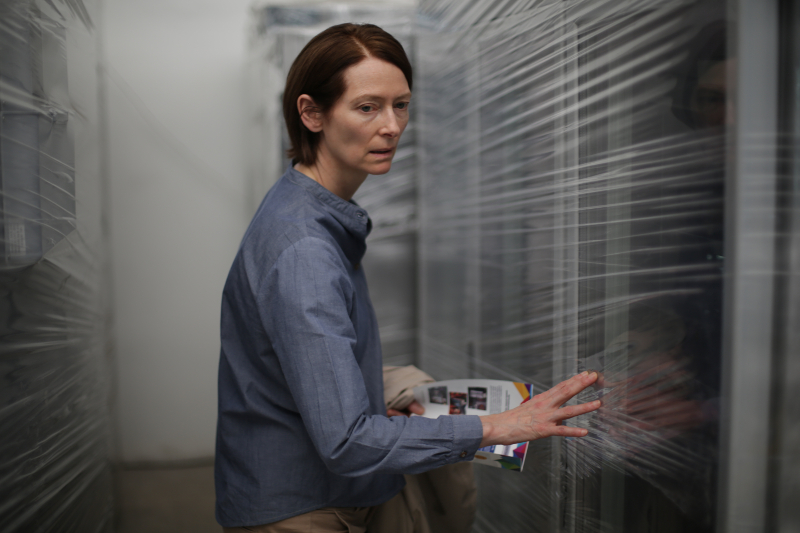Director – Apichatpong Weerasethakul – 2021 – UK, Colombia, Thailand – Cert. 12 – 126m
****1/2
A British woman travelling around Bogotá, Colombia, is troubled by a strange banging sound and goes on a quest to investigate it – out in cinemas on Friday, January 14th
This is a film to approach with caution: I confess to never having previously got on with a Weerasethakul film; perhaps I’ll go back and revisit some after this. His work – or at least his feature films – have been described as Slow Cinema (of which, more shortly).
This is light years away from Hollywood cinema with its determination to grab your attention and hold it by throwing stuff at you at frequent intervals. The director is Thai, however his films don’t seem to sit alongside any Thai movies or wider Oriental movies I’ve seen. Even locating it in art house cinema, it doesn’t really look like anything else. I am reminded of what has been said about the French director Jean-Luc Godard: if cinema hadn’t existed, he would have invented it. Although his movies are nothing like Godard’s, the same could be said of Weerasethakul’s movies.
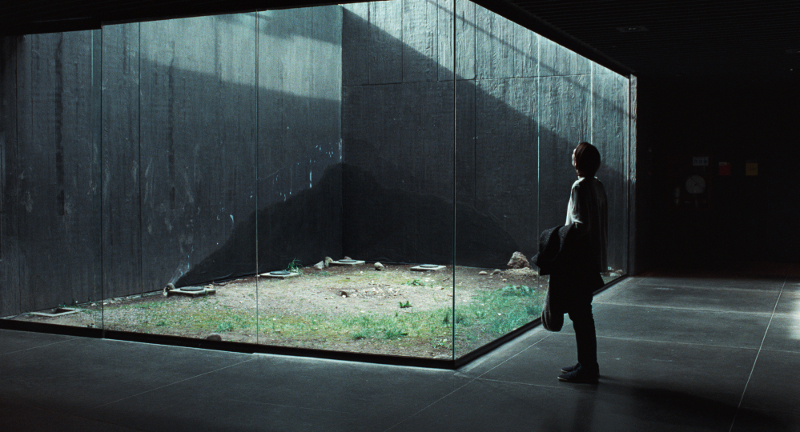
Actually, the feature films are only the tip of the iceberg: he makes far more short films than he he does features, an output that immediately puts him at odds with the feature film-oriented world of theatrical cinema distribution. He also works in the area of art video installation and has exhibited at various galleries throughout the world. So he could be said to be as much an artist as a film director. Not that a film director isn’t an artist, but Weerasethakul clearly operates both as an independent within (or without?) the Thai and international film industries and within the art world.
And so to Slow Cinema and the current feature. The plot (yes, it does have one) has Jessica Holland (Tilda Swinton, one of the film’s two executive producers along with Carlos Paz) as a Brit visiting her hospitalised sister in Bogotá, Colombia. One night she is awakened from sleep by a mysterious bang, a one-off sound. Perplexed, she resolves to get to the bottom of the mystery, but while she is able to recreate the sound with the help of a sound technician in a recording studio, this leads her no closer as to what it might actually be. Her quest eventually leads her to a man who has lived in the same village all his life, eschewing mass media.
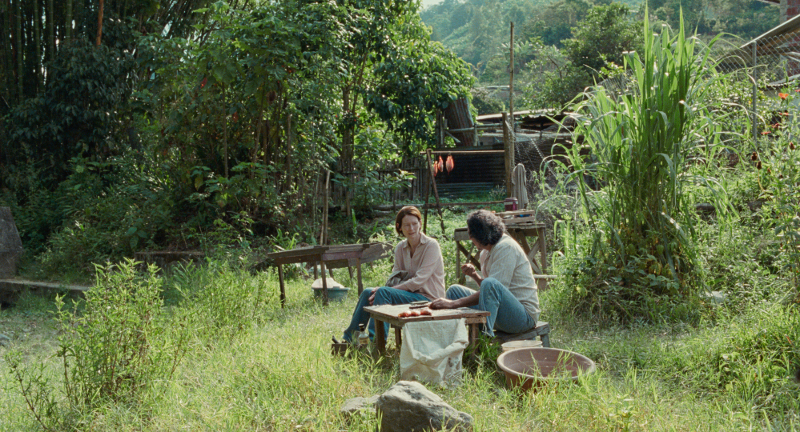
Although the setting is Colombia and a small amount of the language spoken is Spanish, the film follows Swinton’s character with most of her conversations taking place in English (the first feature Weerasethakul has made in this language rather than his native Thai). Swinton is perhaps the perfect Weerasethakul movie protagonist: fiercely intelligent, determined to get to the bottom of things, yet struggling before our eyes to find the words to explain the near-verbally unexplainable. Her character may not exactly be out of her depth amidst the baffling circumstances in which she finds herself (at least, no more so than the audience), yet her refusal to give up her investigation of them draws us in. It’s difficult to imagine another actress who would have this exact effect. In some films, the presence she projects infuriates; in this one, somehow, it seems to fit. She’s the perfect conduit for Weerasethakul’s decidedly off-kilter sensibilities.
It’s a long film and feels that way, a statement which usually denotes a poorly-made film that quickly outstays its welcome, but that’s not the sense in which I mean it here. Many shots are held for a considerable length of time so that that aspect of film editing that cuts from one shot of film to another is not allowed to mediate the images while that is being held in check. Compared to most films which rely to a much greater extent to what one might call the grammar of film editing, this has the effect both within specific scenes and throughout the film of slowing down the viewer’s perception, so that when the central character comes across the isolated villager and sits own to listen to and converse with him, the effect is much like those moments (periods) in real life when you meet someone and engage in lengthy, deep and meaningful conversation about… whatever. It seems a strange thing to do, to go into a cinema to discover (or rediscover) this – but why not? We are entering the area of the transcendent here.
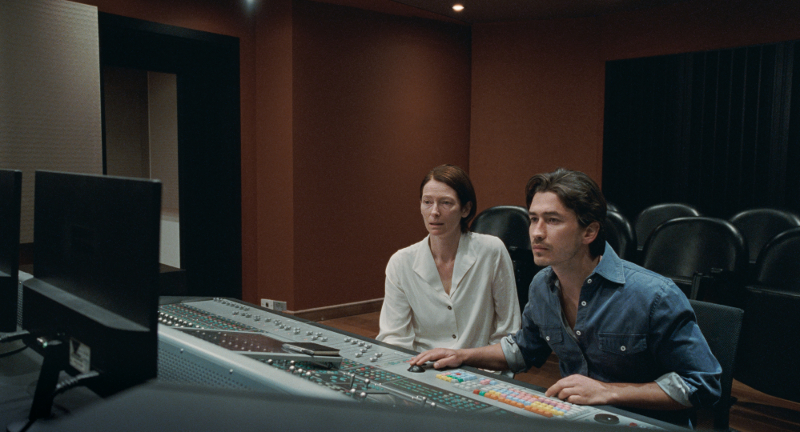
This certainly works in the recording studio sequence, where the search to reproduce the sound the character has heard is matched in its success at exactly recreating the sound by the failure to gain any understanding as to what the sound actually is or might represent. It works in other sequences too, such as Jessica’s return to the studio when she can’t find the sound technician who previously helped her and no-one seems to know anything about him or even have heard of him. It works in the sequence where she watches a jazz band perform in a rehearsal studio, something reasonably easy to create in real life but something almost impossible to capture in moving image without turning it into a talent show or mediating it with editing cuts. It works in the lengthy encounter with the villager towards the end.
There’s also a deeply problematical and utterly unexpected special effects scene toward the end where this aesthetic sort of works. It’s certainly slow and breathtaking, but what it shows (and I’m not about to give that particular game away, beyond pointing out that this scene is there) seems at odds with everything else in the film, almost as if it had wandered on from an entirely different movie about a completely different subject. If this little section – brilliant in its own right – sits uneasily in the larger whole, that larger whole remains an extraordinary experience.
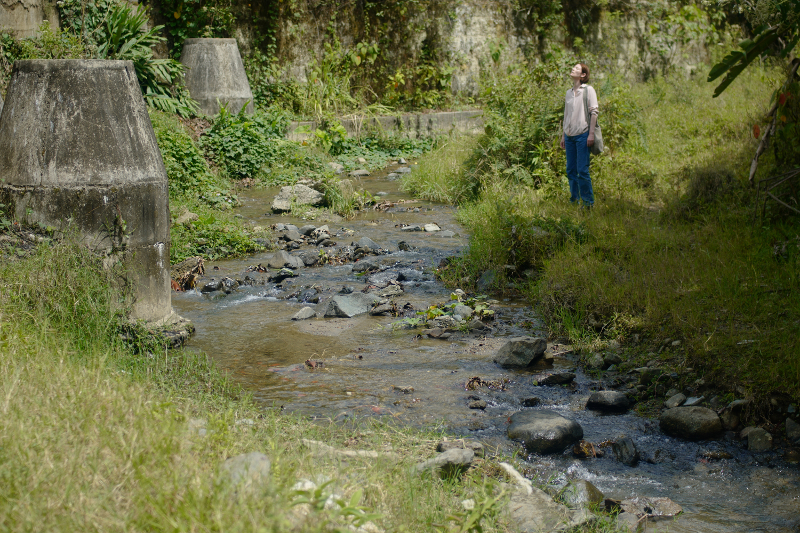
Provided you’re forewarned as to something of the nature of what you’re in for, Memoria is worth the effort. It’s a full-on, immersive experience, although even the phrase “full-on, immersive experience” could be easily misinterpreted. It may be flawed, it might not be everyone’s cup of tea, but for those who can get on its wavelength, tuning in brings considerable rewards.
Memoria is out in cinemas in the UK on Friday, January 14th.
Trailer:
